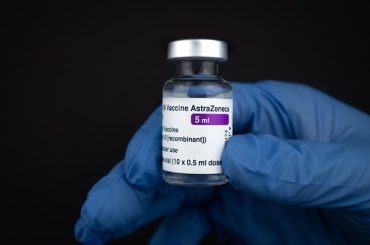Before we dive deep into the PESTEL analysis, let’s get the business overview of Colgate-Palmolive. Colgate-Palmolive Company is a multinational consumer products corporation specializing in producing, distributing, and selling various household, healthcare, and personal care products.
The company was founded in 1806 by William Colgate as a soap and candle business in New York City. Over the years, it has expanded its product offerings and geographical presence, becoming one of the leading global brands in the consumer products sector.
The company operates through two main segments:
- Oral, Personal, and Home Care: Colgate-Palmolive is best known for its oral care products, including toothpaste, toothbrushes, mouthwash, and dental floss, under the brand name “Colgate.” In addition to oral care, the company also manufactures personal care products like soaps, shower gels, and deodorants under various brand names, such as Palmolive, Irish Spring, and Sanex. The home care product line includes detergents, fabric conditioners, and dishwashing liquids under brands like Ajax, Fabuloso, and Soupline.
- Pet Nutrition: Colgate-Palmolive’s pet nutrition division, primarily under the “Hill’s Science Diet” and “Hill’s Prescription Diet” brands, provides high-quality pet food for cats and dogs. These products cater to the specific nutritional needs and health conditions of pets, emphasizing the importance of scientific research in creating products that promote pet health and well-being.
Colgate-Palmolive operates in more than 200 countries and territories worldwide, with manufacturing facilities spread across the globe. The company’s products are marketed through direct sales, distributors, retailers, and e-commerce channels.
Financial Performance 2023: Financially, Colgate-Palmolive has a robust balance sheet and has consistently delivered revenue growth and profitability. Worldwide Net sales were $19,457 Mn in 2023, up 8.5% from 2022, and Operating profit increased 38% to $3,984 Mn in 2023 from $2,893 Mn in 2022.
Here is the PESTEL analysis of Colgate-Palmolive
A PESTEL analysis is a strategic management framework used to examine the external macro-environmental factors that can impact an organization or industry. The acronym PESTEL stands for:
- Political factors: Relate to government policies, regulations, political stability, and other political forces that may impact the business environment.
- Economic factors: Deal with economic conditions and trends affecting an organization’s operations, profitability, and growth.
- Sociocultural factors: Relate to social and cultural aspects that may influence consumer preferences, lifestyles, demographics, and market trends.
- Technological factors: Deal with developing and applying new technologies, innovations, and trends that can impact an industry or organization.
- Environmental factors: Relate to ecological and environmental concerns that may affect an organization’s operations and decision-making.
- Legal factors: Refer to the laws and regulations that govern businesses and industries.
In this article, we will do a PESTEL Analysis of Colgate-Palmolive.
PESTEL Analysis Framework: Explained with Examples
Political
- Government Regulations and Policies: Colgate-Palmolive has to comply with numerous regulations on product safety, quality, and labeling, which differ from country to country. Changes in these regulations can significantly impact production costs and market accessibility.
- Political Stability: Colgate-Palmolive operates in numerous countries. Political instability in these markets, such as government upheavals or civil unrest, could disrupt supply chains or market conditions.
- Trade Policies: Trade restrictions, tariffs, and customs duties can affect how the company sources its raw materials and distributes its products. With changing political landscapes, trade wars or nationalist policies can impact the cost structure.
- International Relations: Given that Colgate-Palmolive is a multinational company, the political relationships between the home country (the U.S.) and the countries where it operates can affect its business. Favorable relationships usually facilitate smoother business operations, whereas strained relations might pose obstacles.
- Regulatory Compliance: In various markets, local regulations may necessitate product adjustments (like fluoride levels in toothpaste) or marketing strategies (like health claims). Adhering to these could entail cost implications and affect the brand’s image.
- Intellectual Property Rights: Political stances on intellectual property protection vary by country, affecting how Colgate-Palmolive may choose to operate or protect its products in different markets.
Colgate-Palmolive SWOT Analysis
Economic
- Exchange Rates: As an international company, Colgate-Palmolive is exposed to fluctuating exchange rates, which can significantly impact its profits. A stronger U.S. dollar could make its products more expensive in other countries, affecting sales.
- Inflation Rates: Inflation affects both production costs and consumer purchasing power. Higher inflation can increase the cost of raw materials, which may either erode profit margins or be passed on to consumers in the form of higher prices, affecting sales volume.
- Interest Rates: Interest rates affect borrowing costs for the company and disposable income for consumers. Higher interest rates usually mean higher costs for financing debt and can reduce consumer spending, impacting sales negatively.
- Economic Growth: Economic growth generally signifies higher disposable income and consumer spending, which can lead to increased demand for Colgate-Palmolive products. Conversely, an economic downturn usually leads to reduced spending on non-essential items.
- Income Distribution: In markets with uneven income distribution, Colgate-Palmolive may need to diversify its product offerings to cater to different income groups. For example, introducing lower-cost versions of their products could attract price-sensitive consumers.
- Raw Material Costs: The cost of raw materials like fluoride, plastic, and other chemicals is subject to global supply and demand, which can be influenced by various economic factors such as trade policies, natural disasters, or economic sanctions.
Colgate-Palmolive Marketing Mix (4Ps)
Sociocultural
- Consumer Preferences and Lifestyle: Different cultures have varying personal care and hygiene preferences. For example, certain toothpaste flavors may be more prevalent in specific regions. Understanding these preferences allows Colgate-Palmolive to customize its product offerings.
- Health and Wellness Trends: Growing health and wellness awareness can impact the sale of Colgate-Palmolive’s products. The shift toward natural and organic ingredients may push the company to reformulate some of its products to meet these demands.
- Demographics: Age distribution within a market can influence product demand. For instance, an aging population may increase the demand for specific oral care products designed for older individuals. At the same time, a younger demographic might be more open to trendy packaging or flavors.
- Social Norms and Taboos: Social norms about oral hygiene or personal care can vary significantly between cultures. In some societies, there may be taboos against certain products, and understanding these can help Colgate-Palmolive position its products more effectively.
- Income Distribution and Social Class: Perceptions about a brand can be influenced by the socioeconomic status of its consumers. In some markets, Colgate-Palmolive might be viewed as a high-end brand, while in others, it may be seen as a mass-market product. This perception can affect the company’s pricing and promotion strategies.
- Cultural Attitudes Toward Brands and Advertising: Consumer responses to brand messaging and advertising can be heavily influenced by cultural attitudes. What works in one market might not work in another, necessitating localized marketing strategies.
- Family Dynamics: In some cultures, family opinions heavily influence purchasing decisions, especially for products the entire household uses. In such cases, Colgate-Palmolive might need to target individual users and household decision-makers.
Technological
- Product Innovation: Technological advancements in personal care and health can provide Colgate-Palmolive with opportunities for product innovation. This can range from toothbrushes with built-in sensors to eco-friendly packaging technologies.
- Supply Chain Automation: Advances in automation and data analytics can streamline supply chain management, making it more efficient and cost-effective. This could involve everything from automated warehousing to real-time inventory tracking.
- E-commerce Platforms: The growth of online retail platforms provides an alternative channel for reaching consumers directly. Colgate-Palmolive needs to have a robust online presence to capitalize on this trend.
- Digital Marketing: With the increasing influence of social media and online reviews, digital marketing technologies are becoming crucial for brand promotion and reputation management. Colgate-Palmolive would need to leverage these platforms effectively to stay competitive.
- Data Analytics: Big data analytics can provide insights into consumer behavior, market trends, and operational efficiencies. This data-driven approach can inform various aspects of business strategy, from product development to marketing campaigns.
- Internet of Things (IoT): Smart home technologies and IoT devices offer new avenues for product development and customer engagement. For instance, smart toothbrushes that sync with a mobile app to provide real-time feedback on brushing habits could be a future product offering.
Environmental
- Sustainable Sourcing: Consumers are increasingly aware of the environmental impact of their products, including where the ingredients come from. Colgate-Palmolive must consider sustainable sourcing practices to meet consumer demands and ensure the long-term availability of raw materials like palm oil, fluoride, and plastics.
- Waste Management: From production to post-consumer waste (like non-recyclable toothpaste tubes), waste management is a critical environmental concern. The company could invest in eco-friendly packaging and recycling initiatives to address this.
- Energy Efficiency: Manufacturing processes consume significant amounts of energy. Adopting renewable energy sources and energy-efficient technologies helps reduce operational costs and lessens the company’s carbon footprint.
- Water Usage: Many of Colgate-Palmolive’s products, such as toothpaste and soaps, are water-based or require water in manufacturing. Efficient water use and water recycling technologies can be vital for environmental responsibility and operational efficiency, especially in regions where water scarcity is an issue.
- Consumer Preferences: As awareness of environmental issues grows, consumers are more likely to choose eco-friendly products. Colgate-Palmolive may need to reformulate products or introduce new product lines that meet these preferences to stay competitive.
Legal
- Product Regulation and Compliance: Colgate-Palmolive’s products, such as toothpaste, mouthwash, and personal care items, are subject to various regulations concerning safety, labeling, and ingredients. Regulatory bodies like the FDA in the U.S. and similar organizations in other countries set standards that the company must adhere to.
- Intellectual Property: Protecting intellectual property rights for new formulations, technology, or packaging designs is crucial for maintaining a competitive edge. This involves legal measures such as patents, copyrights, and trademarks.
- Antitrust and Competition Laws: Colgate-Palmolive must be mindful of antitrust laws that prohibit unfair business practices aimed at eliminating competition. This is particularly relevant given the company’s significant market share in various product categories.
- Environmental Laws: Increasingly strict environmental regulations affect how products are made, packaged, and distributed. Non-compliance can result in hefty fines and damage to the brand’s reputation.
- Advertising Laws: Different countries have different regulations concerning what can and can’t be said in advertising. Colgate-Palmolive has to ensure its marketing campaigns comply with local laws to avoid legal issues and potential backlash.
- Consumer Protection Laws: Laws that safeguard consumers’ rights have to be considered, especially in terms of product quality, warranties, and return policies. Failure to meet these legal requirements can result in lawsuits and damage to the brand.











